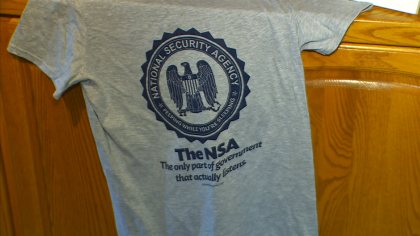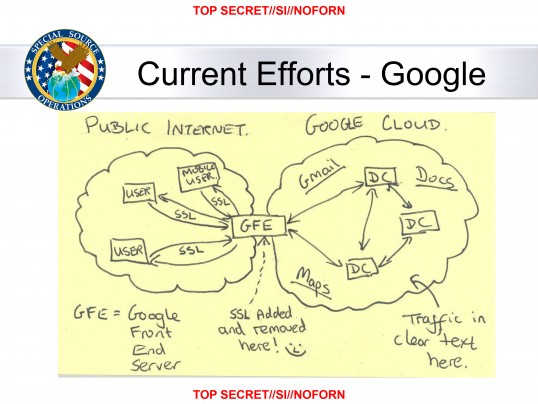An excerpt from Eben Moglen’s extraordinary second lecture on “Snowden and the Future”.
The fastening of the procedures of totalitarianism on the human race is the political subject about which Mr. Snowden has summoned us to an urgent inquiry. And it is that inquiry which it has been the goal of pretty much everybody responding on behalf of any Government or State not just to ignore but to obscure.
We begin therefore where they are determined not to end, with the question whether any form of democratic self-government, anywhere, is consistent with the kind of massive, pervasive, surveillance into which the Unites States government has led not only us but the world.
This should not actually be a complicated inquiry.
For almost everyone who lived through the 20th century—at least its middle half—the idea that freedom was consistent with the procedures of totalitarianism was self-evidently false.
Those who fought against it, those who sacrificed their lives to it and had to begin again as displaced persons and refugees around the world, and those who suffered under the harrow of it were all perfectly clear that a society that listens to every telephone call, spies on every meetings, keeps track of everybody’s movements is incompatible with a scheme of ordered liberty, as Justice Benjamin Cardozo defined American constitutional freedom.
But at the beginning of the 21st century, what seemed clear and absolutely unnecessary to inquire into in the 20th is now, apparently, a question.
So we had better address it directly.


